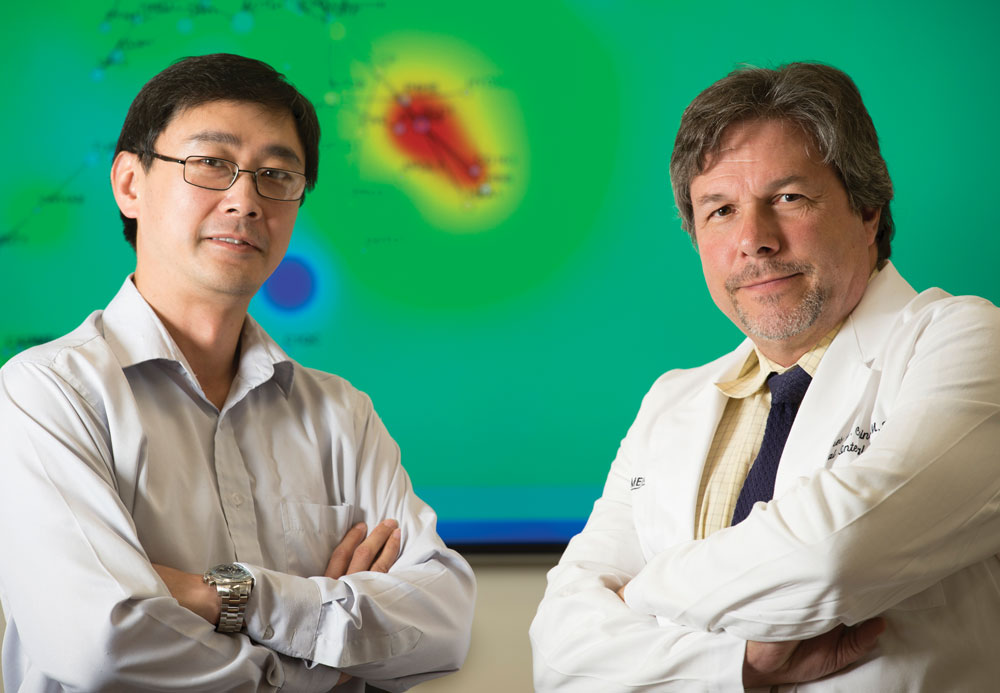 By 2020, medical knowledge is projected to double every 73 days, making one of the chief challenges of the “genomic era” picking out relevant information from a sea of data. This has helped bring informatics to the forefront in medicine.Thanks to the sequencing of the human genome and the flood of research and discovery that followed, the rate of medical knowledge has doubled every three years since about 2010. And the pace is quickening—by 2020, medical knowledge is projected to double every 73 days, making one of the chief challenges of the “genomic era” picking out relevant information from a sea of data. These developments have helped bring informatics, once a niche field, to the forefront in medicine.
By 2020, medical knowledge is projected to double every 73 days, making one of the chief challenges of the “genomic era” picking out relevant information from a sea of data. This has helped bring informatics to the forefront in medicine.Thanks to the sequencing of the human genome and the flood of research and discovery that followed, the rate of medical knowledge has doubled every three years since about 2010. And the pace is quickening—by 2020, medical knowledge is projected to double every 73 days, making one of the chief challenges of the “genomic era” picking out relevant information from a sea of data. These developments have helped bring informatics, once a niche field, to the forefront in medicine.
UAB established the Informatics Institute in 2014 and recruited James Cimino, M.D., former chief of the Laboratory for Informatics Development at the National Institutes of Health, to be its inaugural director. Last spring, Jake Chen, Ph.D., joined the institute as associate director and chief bioinformatics officer. Chen previously was founding director of the Indiana Center for Systems Biology and Personalized Medicine at Indiana University.
Broadly speaking, informatics is “the art and science of organizing data about human health and disease, and making it useful for problem solving,” Cimino explains. Chen’s specialty is bioinformatics, which he says is the lynchpin of the genomic research revolution. “I like to say that bioinformatics is like a computer’s central processing unit, the brain of genomic medicine,” he says. “The whole human genome is 3.1 billion base pairs, and roughly 0.1 percent of that is the individual variation from the reference genome, but still that’s several million. It is very challenging to sift through unless you have informatics practices—computers, prior knowledge databases, experts who know what they are looking for. You can’t just collect the data and expect it to speak for itself.”
 Jake Chen (left) and James Cimino (right) lead the UAB Informatics Institute.Cimino and Chen have spent the past year assembling a formidable team of informatics researchers who have been busy collaborating with UAB researchers, individually and through the UAB Center for Clinical and Translational Science. With the addition of 10 new faculty members and their teams, the Informatics Institute is prepared to address the full spectrum of clinical and biomedical informatics research needs in the School of Medicine.
Jake Chen (left) and James Cimino (right) lead the UAB Informatics Institute.Cimino and Chen have spent the past year assembling a formidable team of informatics researchers who have been busy collaborating with UAB researchers, individually and through the UAB Center for Clinical and Translational Science. With the addition of 10 new faculty members and their teams, the Informatics Institute is prepared to address the full spectrum of clinical and biomedical informatics research needs in the School of Medicine.
One of the biggest projects the institute is currently involved in is the Alabama Genomic Health Initiative, a statewide program—one of the first of its kind in the country—aimed at analyzing the genetic information of thousands of Alabamians to help prevent, diagnose, and treat disease (click here to learn more). “The participants’ genomic data is being collected in a biobank, so it’s a lot of data to manage,” says Cimino. “We’re putting that data into an i2b2 (Informatics for Integrating Biology and the Bedside) data repository so researchers with the appropriate access can use the data to identify subjects for future studies. For example, they can search for all the people who have had a lab test that shows poor kidney function and have certain genetic markers. Since many of the subjects will be patients at UAB, the researchers can also access clinical data we may have on those subjects as part of their electronic health records. We have the breadth of all clinical data that’s in the electronic health record, and it’s alive and growing as patients come in to receive care and more data is added.”
But, as Chen points out, the real transformative power of informatics does not lie solely in building the technology and collecting the data. “If you simply use IT, you can create more efficient medicine, but more intelligent medicine connects the minds of basic science researchers—what they know about biological systems—to clinicians,” he says. “Informatics can help extract that knowledge and build a knowledge base, along with new tools to help to push medicine to the next level. In my opinion, informatics is really a discovery hub.”
Click here to learn more about the UAB Informatics Institute.
By Jane Longshore